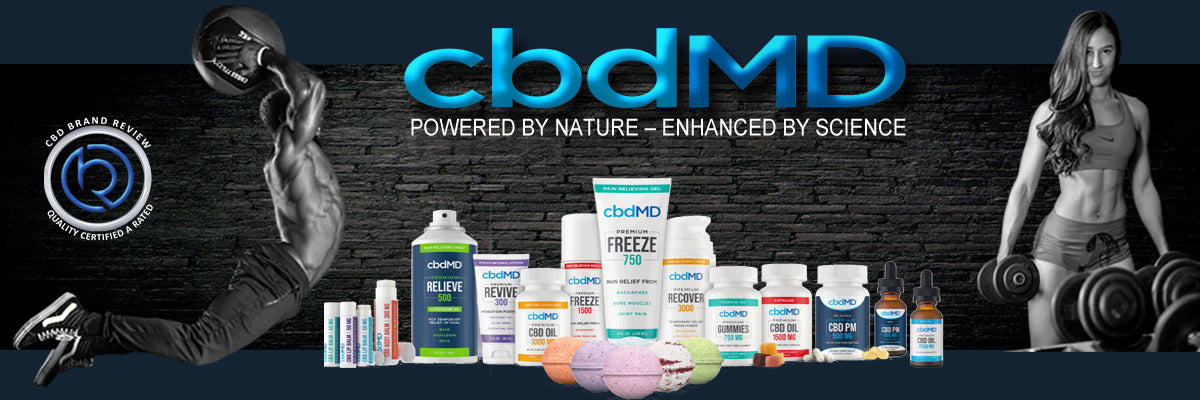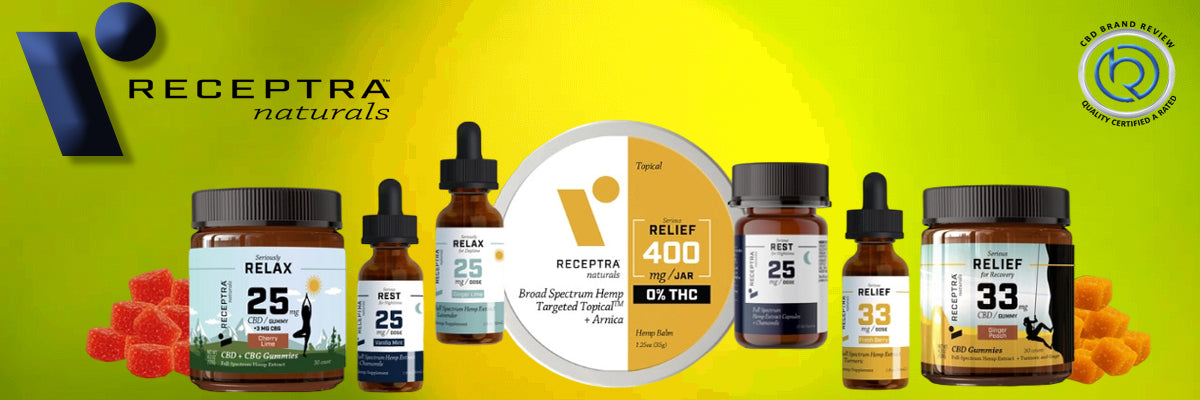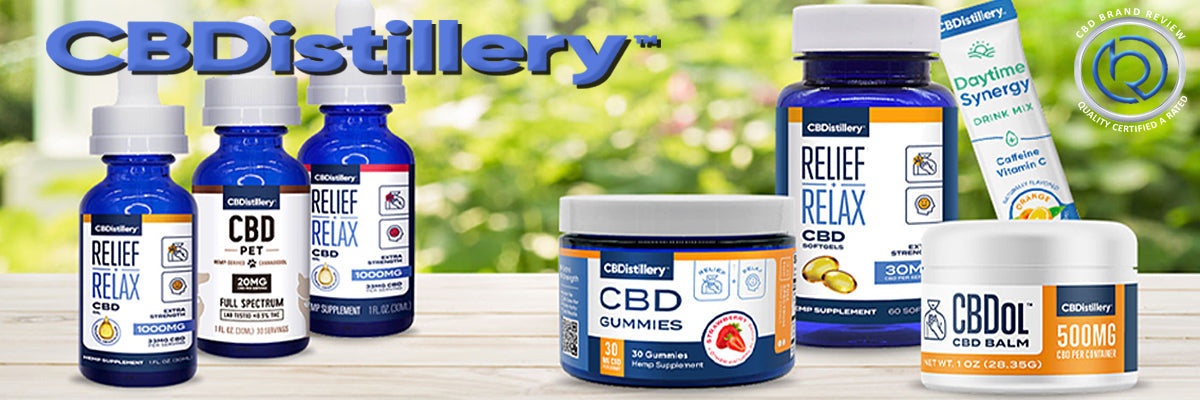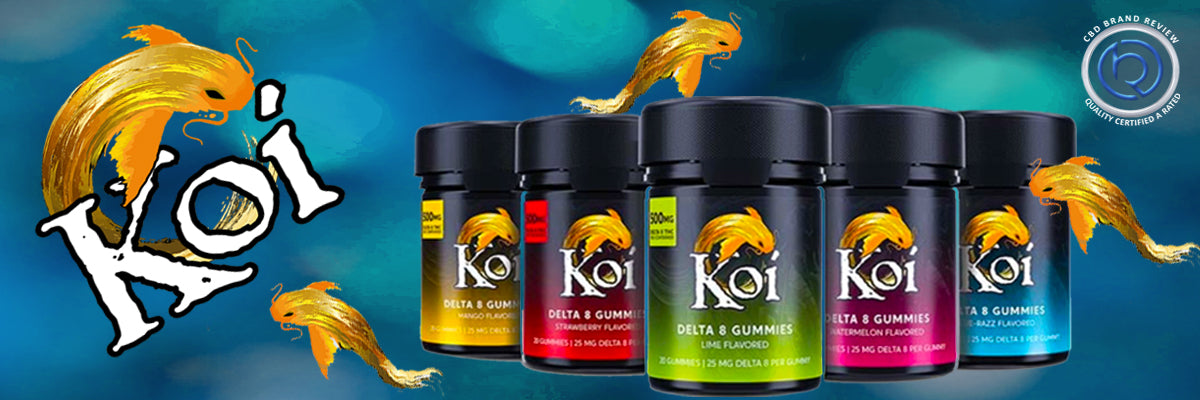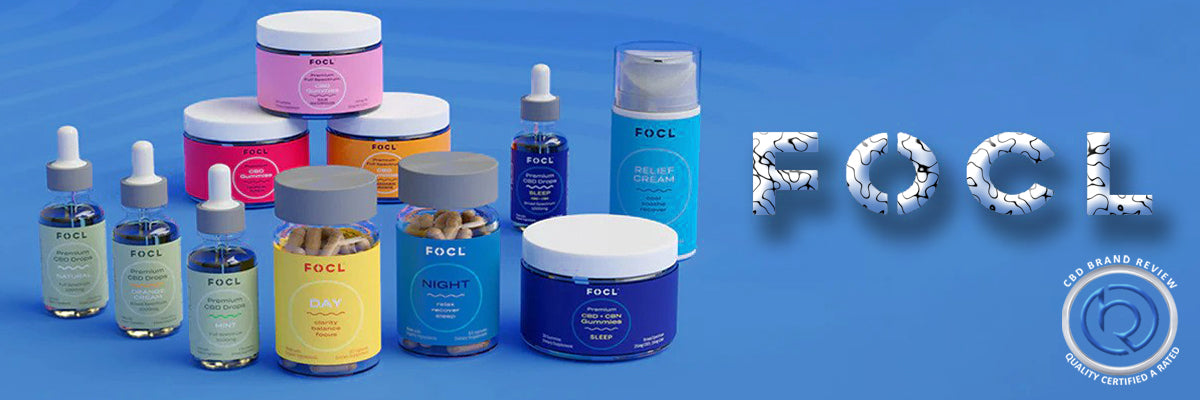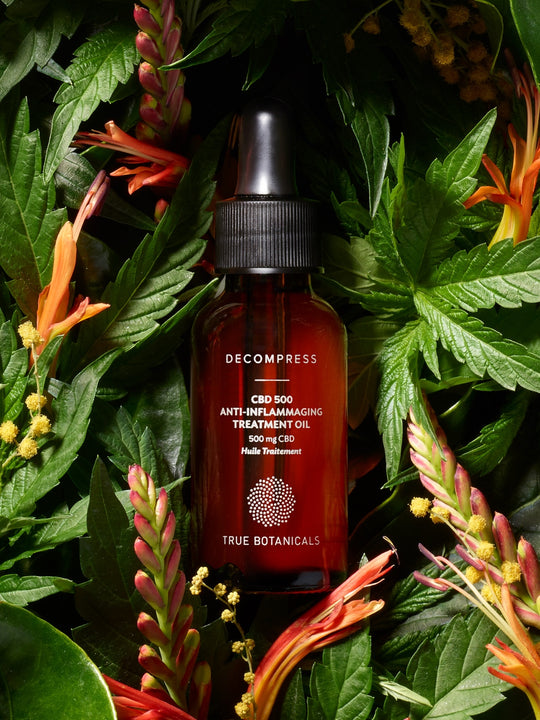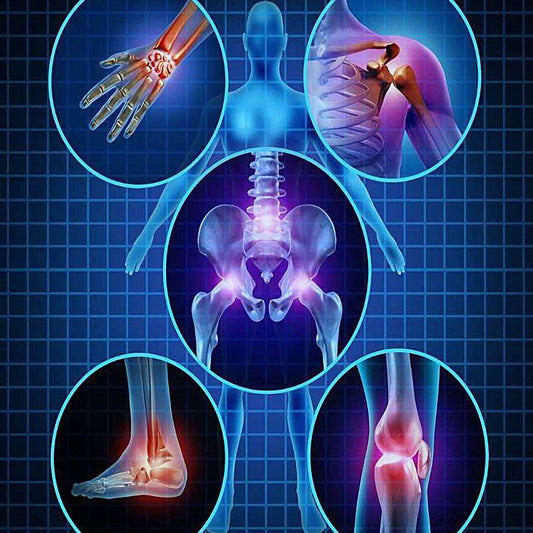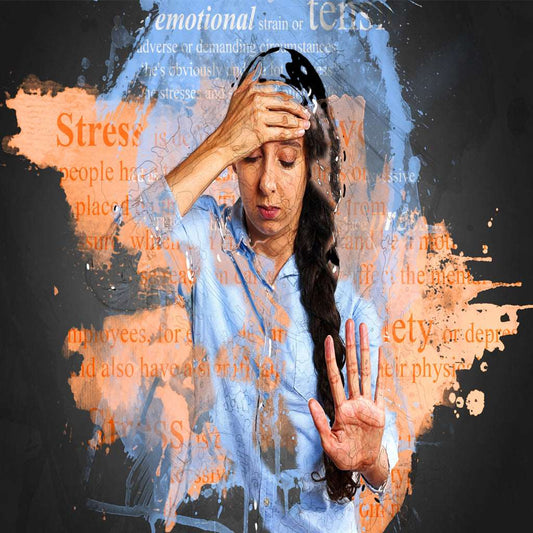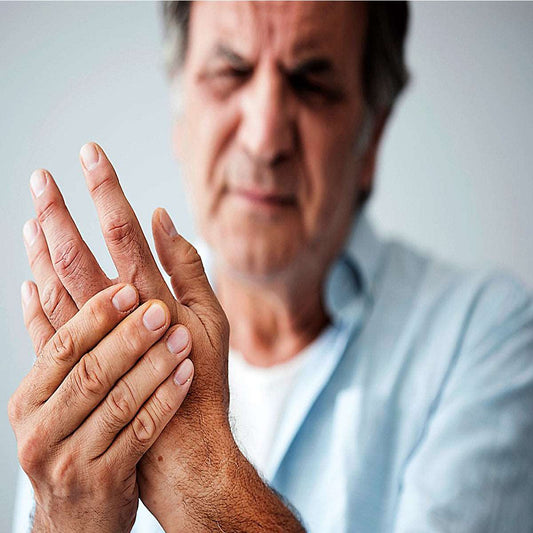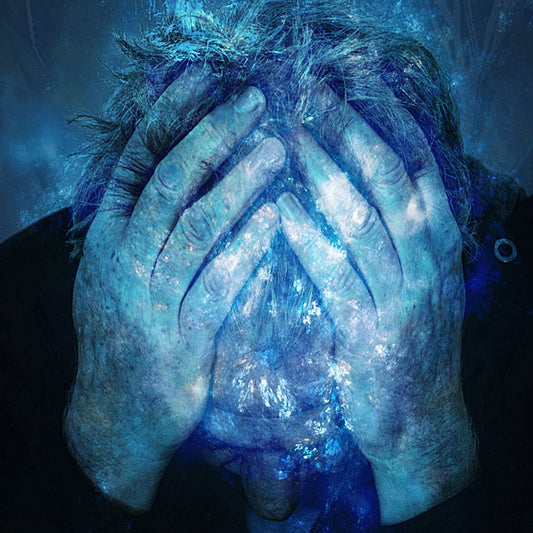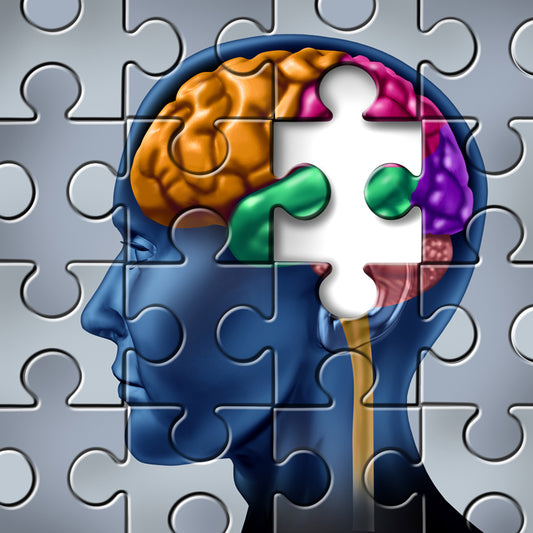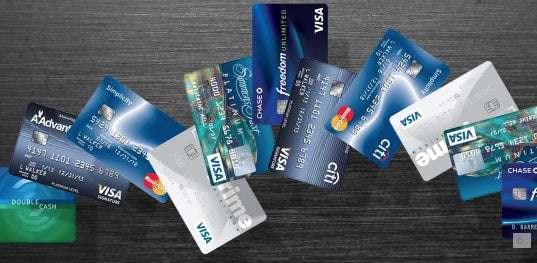Today, More Than 3500 CBD Brands Are Fighting For Our Business!
So how do we navigate through 1000's of sites? How do we know the brands we like are ligit or just fancy packaging with a pretty bow?
Here at CBD Brand Review we research CBD brands for a living! We verify their credentials, scrutinize farming practices, authenticate COA’s (Certificates of Analysis) and, dissect brand transparency.
Upon favorable results, we purchase their products for further testing… We consume their edibles, oils, and drinks. We apply their topicals and vape the vapes!
We then present all of our research, and data in an easy to understand report card, designed to provide you with a quick, visual interpretation of a company's quality and integrity.
NOTE: The CBD brands and products we promote here on our site, are those brands that meet or exceed our research-intensive vetting process. Each of these brands provide exceptional quality, value, and transparency!
Our Top CBD Brands
-

Aspen Green | 2024 Review
Aspen Green | A Premium CBD Company | USDA Certified Hemp | 60-Day...
-

MontKush CBD | 2024 Review
Freshly Squeezed If you're looking for a top-quality CBD brand that uses...
-

MedTerra CBD | 2024 Review
A Giant in the CBD Industry Who's #1 Priority is their Customers!...
-

American Shaman | 2024 Review
A Tradition of Quality | Variety | And Transparency Founded in...
-

Just CBD | 2024 Review
Excellent Pricing | Huge Selection | Organic Products | 60-Day Returns Just...
-

FOCL CBD | 2024 Review
An Excellent Selection | Ranked as Best CBD Oil in 2024 ...
-

CBDistillery | 2024 Review
Excellent Selection | Top Quality CBD Products | 100% Transparency. Its easy...
-

Koi Naturals | 2024 Review
Great Selection | High Quality | 100% Organic Koi CBD is a...
-

CBDfx | 2024 Review
Another Highly Successful, High-Quality CBD Brand With a Huge Variety of CBD...
-

Five | 2024 Review
In The World Of CBD, Transparency Is KIng!... Five Has Lost Their Crown!...
CBD Product Types
-

Best CBD Oils & Tinctures for 2024
★★★★★ Here at CBD Brand Review we evaluate CBD brands and CBD...
-

Best CBD Gummies for 2024
Select from a variety of brands, flavors, potencies, and quantities in our...
-

Best CBD Topical's For Pain Relief 2024
★★★★★ The Finest Selection of Top CBD Topical's For Pain Management. ...
-

Best CBD Capsules & Softgels for 2024
★★★★★ CBD capsules and soft gels offer a convenient and mess-free alternative...
-

Best CBD For Pet Health in 2024
★★★★★ CBD is Helping Pets Live Happier, Healthier Lives. Over the...
-

Best CBD Vape Products for 2024
★★★★★ Relax, Unwind, And Recharge With The Natural Power of CBD Vaping. ...
-

Best CBD Beverages for 2024
An excellent selection of the best CBD beverages: CBD Sparkling Waters CBD Juices...
Potential Health Benefits of CBD
-
Best CBD for pain 2024
Regular price $0.00Regular priceUnit price per -
Best CBD for Anxiety & Stress 2024
Regular price $1.00Regular priceUnit price per -
Best CBD for Sleep 2024
Regular price $0.00Regular priceUnit price per -
Best CBD for Arthritis 2024
Regular price $0.00Regular priceUnit price per -
Best CBD for Depression 2024
Regular price $0.00Regular priceUnit price per -
Best CBD for Addiction 2024
Regular price $1.00Regular priceUnit price per -
Best CBD for Headaches 2024
Regular price $0.00Regular priceUnit price per -
Best CBD for Beautiful Skin 2024
Regular price $0.00Regular priceUnit price per -
Best CBD for Pets 2024
Regular price $0.00Regular priceUnit price per -
Best CBD for Cancer 2024
Regular price $0.00Regular priceUnit price per -
Best CBD for Epilepsy 2024
Regular price $0.00Regular priceUnit price per -
Best CBD for Autism 2024
Regular price $0.00Regular priceUnit price per
Answers To Your CBD Questions
What is CBD?
CBD is typically derived from industrial hemp and marijuana plants, CBD (cannabinoid) is one of more than 100 known cannabinoids found in the cannabis plant and is the second most abundant cannabinoid with THC typically being the most predominant. Industrial hemp contains less than 0.3% THC, which due to the 2018 Farm Bill, has become legal in all 50 states.
As its popularity increases around the world, many Individuals, especially Boomers, Gen X, and millennials are beginning to take a more proactive role in their overall wellness, utilizing preventative and alternative health options rather than continuing on a regimen of expensive prescription medications.
The list of potential health benefits of CBD is growing. Since 2010, nearly 23,000 scientific papers have been published, making cannabinoids one of the most studied health remedies in the world! Some of the many potential health benefits of CBD include pain relief, (especially chronic pain), Anxiety and stress, sleeping disorders, arthritis, depression, addiction, migraines, and certain types of Epilepsy in children.
Legal in all 50 states, CBD can be found in thousands of different products, we’ve even heard of a sports bra infused with CBD. Now that CBD is federally legal, it has become one of the fastest-growing industries in history. In 2021 the CBD market reached $4.9 billion and is estimated to reach a staggering $47.22 billion by 2028. A 21.3% CAGR growth rate.
It’s interesting to note that CBD has nearly an identical molecular structure to that of THC or tetrahydrocannabinol, (the substance in marijuana that gets you high), yet by itself, CBD has no intoxicating psychotropic effect and is non-toxic. It can generally be used on a daily basis with some 75% of CBD users claiming no adverse effects whatsoever. The most common side effect of CBD is dry mouth.
Having said that, there are three main types of CBD and each provides a different benefit that you should get acquainted with. Understanding their pros and cons can help you zero in on which form of CBD is most effective for you.
FULL SPECTRUM CBD
is the extraction of all the cannabinoids, terpenes, and flavonoids in the cannabis plant, including up to 0.3% THC.
Research suggests that CBD's health benefits may be more powerful when all of these compounds are present within our system. This is called the Entourage Effect when the effect of these compounds is more pronounced in combination than in isolation, (like CBD isolates). Or, when the whole is greater than the sum of its parts.
Our bodies have their own endocannabinoid system (ECS), which helps maintain homeostasis to optimize brain and body functions. CBD and its compounds may act in concert, balancing and regulating a variety of physiological and cognitive processes including metabolism, pain sensation, mood, memory, stress, and inflammation. CBD’s action as a protectant against inflammation and oxidative stress could explain the success that many have found using CBD to add to their therapeutic strategy for these conditions and others.
We can go on for days about the synergies of full-spectrum CBD and our own endocannabinoid system. There is an incredible amount of science about this… If you need more, check out this excellent article from Physicians Lab and Dr. Clifford Morris Ph.D. CBD and the Endocannabinoid System.
Please note: While THC is present in full-spectrum CBD, but no more than 0.3%, its psychotropic effect, if any, is extremely minor. However, if you are subject to regular drug testing, the use of full-spectrum CBD may produce a positive result, due to the presence of THC. CBD alone does not cause a positive result, since drug tests are evaluating the presence of THC not CBD.
CBD ISOLATE
is the purest form of CBD — none of the other cannabinoids and compounds are present in CBD isolate including THC. With the complete removal of terpenes, flavonoids, and cannabinoids, CBD isolate eliminates any possibility of receiving the benefits of the entourage effect! But also eliminates any chance of THC showing up on a drug screen!
While some research suggests that pure CBD isolate may still have positive effects on things like anxiety, insomnia and pain, other studies suggest that individuals may require much higher doses of CBD isolate to achieve the same effect as other forms of CBD.
Note: If you must stay far, far away from THC, CBD isolate may be your answer. Furthermore, CBD isolate is highly processed! Please consider purchasing CBD isolate from one of our reviewed brands. Review their COA’s or third-party test results to verify the products purity. CBDistillery is one of our most trusted brands. CBDistillery provides an excellent high-potency 2500mg THC-Free CBD isolate in an oil tincture. Review the COA directly from their site
BROAD SPECTRUM CBD
shares all the same exact compounds as full-spectrum CBD, minus the THC. Thus, broad-spectrum products have the likelihood of producing the same beneficial health advantages as full-spectrum CBD. However, there is an increasing amount of evidence to suggest that even the absence of just THC, may have less of an effect in harnessing the full synergy as whole plant cannabis or full-spectrum CBD.
NOTE: Some the best broad-spectrum CBD brands may still have trace amounts of THC. So carefully read their descriptions and COA’s to verify if any trace amounts of THC exist!
One of our highly-rated brands, Pure Hemp Botanicals, provides a high-quality broad-spectrum CBD with no trace amounts of THC!
HOW MUCH CBD SHOULD I TAKE?
There have been a number of CBD users in the past who have purchased CBD based on hype alone. Individuals, who rightly so, had grand beliefs that CBD would solve all their health issues, only to become discouraged when it failed to meet their expectations… However, the origin of their problem may not have been the CBD, but user error.
The misapplication of any drug can have various outcomes and CBD is not immune. And, while we believe different types of CBD can play a role in the success or failure of your results, we also understand that no type of CBD will work, regardless of type, if we fail to understand that dosage also plays an important function in receiving positive results!
Here’s what we know today… body type & weight, the medical condition you’re trying to treat, body chemistry, metabolism and CBD concentrations all have an impact on your success.
While there is no official serving size to fit everyone, there is a general rule across many CBD sites that suggest 25 -75 mg per day can be a great starting point. After a week's time, increase your dosage by 5-10 mg and continue this until you see results.
A 2011 review on the safety and side effects of CBD found that continuous use of CBD, even in high doses like 1,500 mg a day, is tolerated well by humans.
A 2017 update to the above review confirmed its findings.
If you would prefer a more precise understanding of the best dosing options for you, check out these “Dosing Tips” from one of our top-reviewed CBD brands, Champion and Legends
NOTE: A 2017 review on the safety and side effects of CBD found that continuous use even at doses as high as 1,500 mg per day, was tolerated well. However, a 2019 report has raised concerns about CBD and the potential for liver damage, similar to what we already know about drugs like Ibuprofen.
If you’re currently taking prescribed medications, or pregnant, but feel CBD can help you, CBD Brand Review suggests you discuss your options with your doctor. CBD may have interactions with certain drugs, which could lead to injury or serious side effects.
What are the benefits of CBD
1. Offset Anxiety and Depression
CBD’s ability to calm is perhaps its most popular effect and the reason its use is so widespread. A 2017 study in the Brazilian Journal of Psychiatry tested the anxiety levels of 57 men in a simulated public speaking test. Some received a placebo while others received either 150 milligrams, 300 milligrams or 600 milligrams of CBD before their speeches. Those who received 300 milligrams of CBD experienced significantly reduced anxiety during the test compared to those who received the placebo. Interestingly, participants who received either 150 or 600 milligrams of CBD experienced more anxiety during the test than the 300 milligrams group.
Meanwhile, at least one study in mice revealed CBD had effects similar to the antidepressant Imipramine. Human trials are needed, though, to confirm whether CBD can induce this same antidepressant reaction in our bodies.
2. Treat Select Epilepsy Syndromes
In some instances, CBD can be used to treat epileptic seizures.
In 2018, the Food and Drug Administration (FDA) approved the use of CBD under the brand name Epidiolex to treat seizures resulting from Lennox-Gastaut syndrome and Dravet syndrome—two rare forms of epilepsy—in patients at least 2 years old.
Three well-vetted studies provide the basis of support for the FDA’s decision. In these trials, 516 patients with Lennox-Gastaut syndrome or Dravet syndrome received either Epidiolex or a placebo. Epidiolex, when taken along with other prescribed medications, decreased the frequency of participants’ seizures compared to the placebo.
3. Reduce PTSD Symptoms
In a small 2018 study in the Journal of Alternative and Complementary Medicine, 11 people with post-traumatic stress disorder (PTSD) received CBD along with routine psychiatric care for eight weeks in an outpatient psychiatric clinic. Ten of the 11 experienced a decrease in their PTSD symptoms. CBD was generally well tolerated, the researchers write.
Margaret Rajnic, a doctor of nursing practice experienced in medical cannabis and CBD, emphasizes the importance of using therapy in tandem with any type of cannabis or CBD for PTSD. “There is an amount of therapy that is needed for PTSD,” she says. “But CBD will give you that little bit of decreased anxiety.”
Four other human trials from 2012 to 2016 suggest CBD reduces PTSD symptoms, although some include THC, or tetrahydrocannabinol, the main mind-altering element in cannabis. When THC and CBD work together, they create what’s called an “entourage effect,” complementing each other’s benefits and potency. For example, taking the same dose of THC and CBD together tempers the “high” from THC, while just a little THC paired with more CBD enhances the effects of the CBD.
4. Treat Opioid Addiction
Some studies—both preclinical animal and human clinical trials—suggest CBD could be used to help treat people who are dependent on opioids.
In one such study, researchers administered CBD to people with heroin use disorder. Over the course of a week, CBD significantly reduced heroin users’ cue-induced cravings, withdrawal anxiety, resting heart rate and salivary cortisol levels. No serious adverse effects were found.
Other studies find CBD helpful in reducing various psychiatric and medical symptoms like anxiety, insomnia and pain in patients with substance use disorders, indicating that CBD may be an effective treatment for opioid addiction. However, further studies are necessary.
5. Alleviate ALS Symptoms
Amyotrophic lateral sclerosis (ALS) is a disease that causes nerve cells in the brain and spinal cord to deteriorate, resulting in loss of muscle control that worsens over time. It’s not yet understood exactly why ALS occurs, although it can be hereditary in some cases. There’s no known cure, and there are only two FDA-approved medications to help treat ALS symptoms.
Research suggests people with ALS can benefit from the entourage effect created by the combination of THC and CBD, similar to people with PTSD. In a 2019 study, patients received a combination of THC and CBD in varying doses depending on their needs and preferences. Those with mild, moderate or severe spasticity (muscle tightness and stiffness) due to ALS reported high levels of satisfaction with the treatment, and those with moderate to severe spasticity reported higher satisfaction rates than those with mild spasticity.
6. Relieve Unmanageable Pain
In 2005, Canada approved the use of Sativex, an oromucosal (absorbed in the lining of the mouth) spray with equal proportions of THC and CBD, for the treatment of multiple sclerosis-related central neuropathic pain. In 2007, Canada approved the medicine’s use again for cancer pain that proved unresponsive to other medications.
Meanwhile, continued studies in the U.S. indicate CBD is effective in treating chronic, non-cancer pain. In one 2020 study, researchers administered CBD topically to a group of patients with symptomatic peripheral neuropathy (a result of brain nerve and spinal cord nerve damage) while another group with the same condition received a placebo. Results showed a significant reduction in intense, sharp pains and cold, itchy sensations in those who used the topical CBD compared to those who used the placebo. No participants reported adverse side effects.
When introduced topically, CBD oil doesn’t affect the systemic issue as it might if it were introduced directly into the bloodstream. Instead, topical CBD is more localized and treats pain in a certain area. Since it’s more direct, it may have a more pronounced effect.
7. Ease Diabetic Complications
For starters, tests on human cells found that CBD helps reduce the effects of high glucose levels on other cells in the body, which typically precedes the development of diabetes and various complications. Researchers concluded that with further studies, CBD could have significant benefits when used in patients with diabetes, diabetic complications and plaque buildup in artery walls.
In another small study, 13 patients with type 2 diabetes who weren’t on insulin treatment were given both CBD and a placebo (in lieu of insulin). Researchers found CBD decreased their levels of resistin (which causes resistance to insulin, the protein that regulates sugar levels) and increased their levels of glucose-dependent insulinotropic peptide (a hormone that ensures a sufficient release of insulin from digested food) compared to their baselines before they started the test. These results suggest CBD could be a natural treatment for diabetes by helping the body regulate insulin-related hormone levels.
8. Protect Against Neurological Disease
Preclinical and clinical studies show that CBD has antioxidant and anti-inflammatory properties. Researchers deduce these characteristics can provide significant neuroprotection, or protection against numerous pathological disorders.
Several preclinical studies suggest CBD can produce beneficial effects against Parkinson’s disease, Alzheimer’s disease and multiple sclerosis. Huntington’s disease and cerebral ischemia were also tested, although significant positive results were not recorded. Further clinical studies are needed to confirm CBD’s benefits when used as a treatment for these disorders.
9. Inhibit Arthritis Symptoms
Arthritis involves the deterioration of the tissues in and around your joints. There are several types of arthritis, and symptoms include pain, stiffness and loss of motion. Arthritis treatment usually targets pain relief and improved joint function.
A 2006 study found that Sativex—a CBD-based botanical drug approved in the United Kingdom in 2010—promoted statistically significant improvements in quality of sleep, pain during movement and pain at rest in patients with rheumatoid arthritis when compared to a placebo. It was the first controlled trial of Sativex as a treatment for rheumatoid arthritis, involving 58 patients. CBD was found to have a pain-relieving effect, as well as an ability to suppress disease activity.
In 2018, in a study of more localized treatment, researchers administered a synthetic CBD gel in either 250-milligram or 500-milligram doses daily or a placebo to patients with knee pain due to osteoarthritis. Patients also stopped taking any other anti-inflammatory medications or painkillers, with the exception of acetaminophen, before and during the study period.
The results were interesting, although not entirely conclusive. On one hand, those treated with CBD did not experience much change in pain when compared with placebo patients. On the other hand, there were statistically significant differences between the group receiving the 250-milligram dose and the placebo group when measuring the average weekly improvement of their worst pain levels and their WOMAC (Western Ontario and McMaster Universities Arthritis Index) physical function rating. Additionally, men seemed to benefit from CBD more significantly than women in this test.
Sources
The Health Effects of Cannabis and Cannabinoids: The Current State of Evidence and Recommendations for Research. Nih.gov. Accessed 5/13/2021.
Corroon J, Felice JF. The Endocannabinoid System and its Modulation by Cannabidiol (CBD). Altern Ther Health Med. 2019;25(S2):6-14.
Cannabidiol (CBD) — what we know and what we don’t – Harvard Health Blog. Harvard Health Blog. Accessed 5/13/2021.
Linares IM, Zuardi AW, Pereira LC, et al. Cannabidiol presents an inverted U-shaped dose-response curve in a simulated public speaking test. Revista brasileira de psiquiatria. 2019;41(1):9-14.
Zanelati TV, Biojone C, Moreira FA, Guimarães FS, Joca SR. Antidepressant-like effects of cannabidiol in mice: possible involvement of 5-HT1A receptors. Br J Pharmacol. 2010;159(1):122-128.
Office of the Commissioner. FDA approves first drug comprised of an active ingredient derived from marijuana to treat rare, severe forms of epilepsy. U.S. Food and Drug Administration. Accessed 5/13/2021.
Elms L, Shannon S, Hughes S, Lewis N. Cannabidiol in the Treatment of Post-Traumatic Stress Disorder: A Case Series. The Journal of Alternative and Complementary Medicine. 2019;25(4):392-397.
Bitencourt RM, Takahashi RN. Cannabidiol as a Therapeutic Alternative for Post-traumatic Stress Disorder: From Bench Research to Confirmation in Human Trials. Frontiers in Neuroscience. 2018;12.
Hurd YL, Spriggs S, Alishayev J, et al. Cannabidiol for the Reduction of Cue-Induced Craving and Anxiety in Drug-Abstinent Individuals With Heroin Use Disorder: A Double-Blind Randomized Placebo-Controlled Trial. American Journal of Psychiatry. 2019;176(11):911-922.
Hurd YL, Yoon M, Manini AF, et al. Early Phase in the Development of Cannabidiol as a Treatment for Addiction: Opioid Relapse Takes Initial Center Stage. Neurotherapeutics. 2015;12(4):807-815.
Bilsland LG, Dick JR, Pryce G, et al. Increasing cannabinoid levels by pharmacological and genetic manipulation delay disease progression in SOD1 mice. FASEB J. 2006;20(7):1003-1005.
Meyer T, Funke A, Münch C, et al. Real world experience of patients with amyotrophic lateral sclerosis (ALS) in the treatment of spasticity using tetrahydrocannabinol:cannabidiol (THC:CBD). BMC Neurol. 2019;19(1):222.
Russo EB. Cannabinoids in the management of difficult to treat pain. Ther Clin Risk Manag. 2008;4(1):245-259.
Xu DH, Cullen BD, Tang M, Fang Y. The Effectiveness of Topical Cannabidiol Oil in Symptomatic Relief of Peripheral Neuropathy of the Lower Extremities. Curr Pharm Biotechnol. 2020;21(5):390-402.
Weiss L, Zeira M, Reich S, et al. Cannabidiol lowers incidence of diabetes in non-obese diabetic mice. Autoimmunity. 2006;39(2):143-151.
Rajesh M, Mukhopadhyay P, Bátkai S, et al. Cannabidiol attenuates high glucose-induced endothelial cell inflammatory response and barrier disruption. American Journal of Physiology-Heart and Circulatory Physiology. 2007;293(1):H610-H619.
A Randomised, Double Blind, Placebo Controlled, Parallel Group, Pilot Study of 1:1 and 20:1 Ratio of Formulated GWP42003 : GWP42004 Plus GWP42003 and GWP42004 Alone in the Treatment of Dyslipidaemia in Subjects With Type 2 Diabetes. clinicaltrials.gov. Accessed 5/13/2021.
Mannucci C, Navarra M, Calapai F, et al. Neurological Aspects of Medical Use of Cannabidiol. CNS Neurol Disord Drug Targets. 2017;16(5):541-553.
Malfait AM, Gallily R, Sumariwalla PF, et al. The nonpsychoactive cannabis constituent cannabidiol is an oral anti-arthritic therapeutic in murine collagen-induced arthritis. Proc Natl Acad Sci U S A. 2000;97(17):9561-9566.
Nagarkatti P, Pandey R, Rieder SA, Hegde VL, Nagarkatti M. Cannabinoids as novel anti-inflammatory drugs. Future Med Chem. 2009;1(7):1333-1349.
Blake DR, Robson P, Ho M, Jubb RW, McCabe CS. Preliminary assessment of the efficacy, tolerability and safety of a cannabis-based medicine (Sativex) in the treatment of pain caused by rheumatoid arthritis. Rheumatology. 2006;45(1):50-52.
Hunter D, Oldfield G, Tich N, Messenheimer J, Sebree T. Synthetic transdermal cannabidiol for the treatment of knee pain due to osteoarthritis. Osteoarthritis and Cartilage. 2018;26:S26.
Will CBD get me high?
No! That's the short answer.
CBD lacks the psychotropic effect found in THC. So when taken on its own, none of the euphoria, paranoia, or anxiety typically associated with THC are realized.
In fact, dozens of studies suggest that CBD actually has the opposite effect, reducing the symptoms of anxiety, and putting us in a more relaxed and sometimes sleepy state.
PLEASE NOTE: While CBD on its own WILL NOT get you high, certain types of CBD do contain trace amounts of THC... So read our Q&A "What is full-spectrum, Broad Spectrum & CBD Isolate" if THC is a concern.
It's important to note that while trace amounts of THC are present in full-spectrum CBD, the level is extremely low (0.3%) Most users report zero effects of THC being present.
So why is THC in full-spectrum? Read our Q&A on "What is the Entourage Effect"
If THC is of little concern to you, we recommend you consider using full-spectrum CBD for the best results!
Can CBD show up in a drug test?
NO... Drug tests or drug screens are looking for THC not CBD, so the answer is NO.
However, there are different types of CBD and you will want to know the differences should drug testing be a part of your employer's company policies.
Please read the next Q&A "What is Full-Spectrum, Broad Spectrum & CBD Isolate" to learn the pros and cons of the three main CBD types.
What is Full-Spectrum Broad-Spectrum & CBD isolate?
FULL SPECTRUM CBD
is the extraction of all the cannabinoids, terpenes, and flavonoids in the cannabis plant, including up to 0.3% THC.
Research suggests that CBD's health benefits are more powerful when all of the compounds, as found in full-spectrum CBD are present within our system. This is called the Entourage Effect when the effect of these compounds is more pronounced in combination than in isolation, (like CBD isolates). Or, when the whole is greater than the sum of its parts.
Our bodies have their own endocannabinoid system (ECS), which helps maintain homeostasis to optimize brain and body functions. CBD and its compounds may act in concert, balancing and regulating a variety of physiological and cognitive processes including metabolism, pain sensation, mood, memory, stress, and inflammation. CBD’s action as a protectant against inflammation and oxidative stress could explain the success that many have found using CBD to add to their therapeutic strategy for these conditions and others.
We can go on for days about the synergies of full-spectrum CBD and our own endocannabinoid system. There is an incredible amount of science about this… If you need more, check out this excellent article from Physicians Lab and Dr. Clifford Morris Ph.D. CBD and the Endocannabinoid System.
Please note: While THC is present in full-spectrum CBD, but no more than 0.3%, its psychotropic effect, if any, is extremely minor. However, if you are subject to regular drug testing, the use of full-spectrum CBD may produce a positive result, due to the presence of THC. CBD alone does not cause a positive result, since drug tests are evaluating the presence of THC not CBD.
CBD ISOLATE
is the purest form of CBD — none of the other cannabinoids and compounds are present in CBD isolate including THC. With the complete removal of terpenes, flavonoids, and cannabinoids, CBD isolate eliminates any possibility of receiving the benefits of the entourage effect! But also eliminates any chance of THC showing up on a drug screen!
While some research suggests that pure CBD isolate may still have positive effects on things like anxiety, insomnia and pain, other studies suggest that individuals may require much higher doses of CBD isolate to achieve the same effect as other forms of CBD.
Note: If you must stay far, far away from THC, CBD isolate may be your answer. Furthermore, CBD isolate is highly processed! Please consider purchasing CBD isolate from one of our reviewed brands. Review their COA’s or third-party test results to verify the products purity. CBDistillery is one of our most trusted brands. CBDistillery provides an excellent high-potency 2500mg THC-Free CBD isolate in an oil tincture. Review the COA directly from their site
BROAD SPECTRUM CBD
shares all the same exact compounds as full-spectrum CBD, minus the THC. Thus, broad-spectrum products have the likelihood of producing the same beneficial health advantages as full-spectrum CBD. However, there is an increasing amount of evidence to suggest that even the absence of just THC, may have less of an effect in harnessing the full synergy as whole plant cannabis or full-spectrum CBD.
NOTE: Some the best broad-spectrum CBD brands may still have trace amounts of THC. So carefully read their descriptions and COA’s to verify if any trace amounts of THC exist!
One of our highly-rated brands, Pure Hemp Botanicals, provides a high-quality broad-spectrum CBD with no trace amounts of THC!
What is the Entourage Effect?
Research suggests that CBD's health benefits are more powerful when all of the compounds from the cannabis plant are present, like those found in full-spectrum CBD. The effect of all compounds working together is more pronounced in combination than in isolation, (like CBD isolates). Sometimes described like this: When the whole is greater than the sum of its parts. This is called the Entourage Effect.
Our body has its own endocannabinoid system (ECS), which helps maintain homeostasis, which helps to create a balance of all bodies systems for us to survive and function correctly.
CBD and its compounds may act in concert, with our ECS, balancing and regulating a variety of physiological and cognitive processes including metabolism, pain sensation, mood, memory, stress, and inflammation. Its action as a protector against inflammation and the stressors that cause oxidative stress, may be one of the many reasons CBD has been so well received worldwide.
The synergies of full-spectrum CBD and our own endocannabinoid system could be discussed for days. However, if you’d like to go deeper into how CBD helps maintain a healthier balance, check out this excellent, short article from Physicians Lab by Dr. Clifford Morris Ph.D. CBD and the Endocannabinoid System.
How much CBD should I take? - CBD Dosing Calculator
There have been a number of CBD users who in the past have purchased CBD based on hype alone. Individuals, who rightly so, had grand beliefs that CBD would solve all their health issues, only to become discouraged when it failed to meet their expectations. However, the origin of their results may not have been the CBD, but user error instead!
The misapplication of any drug can have various outcomes and CBD is not immune. While we believe different types of CBD can play a role in the success or failure of your results, we also understand that no type of CBD will work, regardless of type, if we fail to understand the importance of proper dosing.
Here’s what we know today… Your body type & weight, the medical condition you’re trying to treat, body chemistry, metabolism, and CBD concentrations all have an impact on your success. Consistency also plays an important role. For CBD to be effective, you should be taking CBD everyday
While there is no official serving size that fits everyone, as a baseline, many CBD professionals suggest a dosage of 0.25mg CBD multiplied by your body weight in pounds as a good starting point. Therefore, a 120-pound person should take 30mg of CBD daily (0.25 x 120 = 30mg per serving, per day), and a 220-pound person should take 55mg of CBD daily (0.25 x 200 = 50mg per serving, per day).
WHAT'S THE BEST APPROACH FOR TAKING CBD?
There is no correct or incorrect method for taking CBD. You'll still receive benefits if you use CBD on occasion (like using topical's for muscle pain). Still, your body responds to consistency, just like it does to regular exercise and a healthy diet... everyday usage can help promote long-term conditions.
DOES REGULAR USAGE MAKE A DIFFERENCE?
Yes, using CBD on a regular basis is beneficial, especially if you're taking it for chronic pain, frequent anxiety, or difficulties sleeping. CBD, for example, helps calm your nervous system, and it's easier to avoid a symptom from worsening than it is to treat a severe one.
NOTE: A 2017 review on the safety and side effects of CBD found that continuous use, even at doses as high as 1,500mg per day, was tolerated well. However, a 2019 report raised concerns about CBD at higher doses (above 2000mg per day) with a potential for liver damage... similar to what we already know about drugs like Ibuprofen.
NOTE: If you’re currently taking prescribed medications, or pregnant, but feel CBD can help you, CBD Brand Review suggests you discuss your options with your doctor. CBD may have interactions with certain drugs, which could lead to injury or serious side effects.
Can CBD help with anxiety?
There are an abundant number of studies, both preclinical and clinical, which establish CBD as an effective treatment for a variety of anxiety disorders, including issues that deal with social and obsessive disorders, post-traumatic stress, and panic disorders.
Furthermore, CBD appears to interact well with multiple receptors in the brain, including the 5HT1A serotonin receptor and the type 1 cannabinoid receptor CB1R helping to regulate fear and other anxiety-induced behaviors.
A 2011 study showed that CBD reduced anxiety and discomfort during public speaking in people with social anxiety disorder.
A 2015 review of 49 studies found evidence that suggests CBD could help with generalized anxiety disorder, panic disorder, social anxiety disorder, obsessive-compulsive disorder, and post-traumatic stress disorder (PTSD).
A 2019 study found that out of 11 patients with PTSD, 91% experienced reduced symptoms after taking CBD.
A study in 2019 used CBD to treat people who were struggling with anxiety and sleep. Almost 80% of people’s anxiety improved, and almost 70% reported improved sleep in the first month, but the results for sleep varied over time.
Orally administered, CBD generally begins working within 30 to 120 minutes, while vaping can work almost immediately.
A general consensus, suggests oral doses of 25 – 75 milligrams to help with generalized anxiety and sleep disorders, while for PTSD, 33 to 50 milligrams per day is recommended.
In severe anxiety, a patient's dose may be increased to 300 to 600 milligrams.
It should be noted that continuous doses of up to 1,500 milligrams per day have been tolerated well.
For more information on proper CBD dosage, see or Q&A “How much CBD should I be taking”
What does CBD feel like?
CBD, unlike THC or tetrahydrocannabinol, does not have a psychoactive effect. However, CBD can make you feel calmer, more relaxed, and more focused without any "funny feeling"
What is a Certificate of Analysis (COA)
A Certificate of Analysis (COA) is a specific lab document provided to a CBD manufacturer by an independent, third-party laboratory that tests and confirms the exact content of a given CBD product.
The test results allow you the consumer to confirm the accuracy of the CBD product label.
How do CBD manufacturers obtain COA’s for their products?
It’s important to note that no company is required to obtain a COA for its products. Testing is completely voluntary. However, reputable, trustworthy companies (like the one’s reviewed here) submit their products to third-party testing labs to provide an additional level of transparency to their products.
COA’s are specific not only to a company’s product but should be specific to the product's different batch numbers as well.
Reputable companies will readily provide their COA’s for each product and batch number directly on their website, which correspond to the printed batch number or QR code found on each product.
A QR code is an excellent way to gain instant access to a company’s COA’s from virtually anywhere, (a smart phone will be required). Here at CBD Brand Review, we believe providing QR codes is an excellent way to provide transparency to the customer.
Whether a company provides a printed code or a QR code, the COA should be easy to find on its website, not buried deep within its pages. In addition, it’s convenient when a company provides copies of their COA’s to view prior to making a purchase simply to see what a company is testing for. Some companies inadvertently allow access to their COA’s only after purchasing and the product is in your hands.
When reviewing a COA the name of the lab should be displayed prominently, this way you can easily confirm that testing was not done in-house. Obviously, an independent laboratory has no incentive to provide dishonest results, but an in-house lab might.
The lab details will also be listed in the footer of the certificate, and this is where you’ll find their license number. All labs must have one of these to be legally compliant and legitimize the results found on the COA.
A quality COA should be testing for the following:
Mycotoxins
Pesticides
Concentrations
Cannabinoids
Microbial
Residual Solvents – depending on the extraction method. CO2 extraction is currently the gold standard.
Heavy Metals.
If you can’t easily find a COA, you can contact the company to request one.
Take a look at one of the very best examples of a proper COA. This COA comes from CBDPure. Check it out!
If you learn a company has chosen not to do third-party testing, or is only doing the minimum of testing, you may want to consider asking them why and possibly look to other companies for your CBD products!
Why a COA is important when buying CBD for your pet.
For nearly the same reasons we want COA’s for our own personal products. Unfortunately, inaccurate labeling is sadly common in the cannabis product industry when it comes to pet CBD.
You need to know the potency of a CBD product you buy for your pet, using the correct dosage is the only way your pet can experience the benefits of CBD.
Furthermore, you need to ensure your pet isn’t consuming any THC, and the only way to do that is to be confident in the product label – COAs can give you that confidence.
Are CBD tinctures and CBD oils the same thing?
The term CBD tinctures and CBD oils are often used interchangeably among many CBD sites. While both oil and tinctures come from hemp, CBD tinctures are not the same as CBD oil.
What are CBD oils?
CBD oils are made by extracting oil from the seeds, flowers and stalks of the hemp plant. There are a variety of CBD forms, but CBD oil is the most potent and usually the most expensive. Aside from cannabinoids, fatty acids, protein, essential vitamins and nutrients can also be found in most CBD oils. CBD oils can be vaped, infused into foods, beverages or used as a stand alone under the tongue.
CBD Oil Ingredients
CBD oils are created using a base oil or carrier oil. These oils are accountable for the dilution of CBD, making it easier for the body to absorb. These oils can be Coconut oil, MCT oil, Vegetable oil and or Hemp seed oil.
What are CBD Tinctures?
CBD tinctures are typically alcohol-based plant extracts that use alcohol to steep the plant material. This is then strained, and the entire solution is bottled, along with other ingredients for flavor or specific benefits.
CBD Tincture Ingredients typically are essential vitamins like B12, D, C, etc, Water, herbs, melatonin, sweeteners and oils such as basil, cinnamon, coconut, lavender etc.
Price
The price of any CBD product depends on its strength, potency, extraction method, etc. Due to the fact that many companies use the term tincture and oil interchangeably pricing can be similar in price range… but frequently, high-quality CBD oils are more expensive than CBD tinctures.
Taste
CBD oil typically has an unpleasant taste when consumed orally. It can leave an oily after taste, where tinctures come in different flavors like chocolate, peach, vanilla, etc. and facilitates quick absorption when taken sublingually (putting it under the tongue).
Shelf Life
When compared to CBD oil, tinctures offer an extended shelf life because the alcohol acts as a preservative. When CBD oil has expired it becomes cloudy/foggy. To extend the life of any CBD products, keep them away from direct sun contact.
Conclusion
Deciding between CBD oil and CBD tincture is an individual preference. Regardless of the choice you make, there are many potential advantages of taking CBD infused products for maintaining overall wellbeing.
What are the benefits of hemp oil
CBD Brand Review has not spent a significant amount of time looking into the benefits of hemp oil as we have with CBD.
For years, hemp and hemp oil have had their place in industrial applications, including their use in rope, textiles, paints, clothing, shoes, paper, bioplastics, insulation, and biofuel.
Today, however, hemp is becoming more mainstream as a culinary option, served on salads and vegetables for its unique, earthy flavor and for its healthier benefits over more traditional cooking oils. Hemp oil has zero trans fats and 40% less saturated fats than olive oil, in addition to 25 times the omega 3 and omega 6 fatty acids.
Hemp is also gluten & sodium free, rich in GLA – gamma linoleic acid, which is good for boosting immunity, and ALA – alpha-linoleic acid, which has been shown to reduce cardiovascular disease. In addition, Hemp oil provides all of the following:
All 9 of the essential amino acids
Calcium
Carotene
Chlorophyll
Iron
Magnesium
Phosphorus
Potassium
Sulfur
Vitamin E
Zinc
Hemp seeds, hemp oil even hemp edibles can be found just about anywhere today. Unlike CBD, hemp can even be found on Amazon, Facebook and Instagram. Hemp is much cheaper to produce than CBD but it also lacks the significant benefits associated with CBD. See (“What are the benefits of CBD”) within this drop-down menu.
Some studies show that hemp can be great for joint and skin care, beneficial to brain function, helps to reduce blood pressure and cholesterol levels, as well as providing some anti-inflammatory properties.
If you’re looking for a healthier alternative to your extra virgin olive oil or a new dietary supplement, hemp may be an excellent choice.
NOTES:
1) “Hemp oil" is still at times used as an alternate name for CBD oil so check the label carefully. If you are looking specifically for hemp oil and not CBD, make sure the product is made from hemp seed!
2) Due to hemp's fat composition, hemp oil can go rancid easily, degrading quickly when exposed to oxygen. Hemp oil is best consumed raw and FRESH. Store hemp oil in the refrigerator or freezer after opening to help extend its shelf life.
3) Due to its low flash point, (the temperature where a liquid vaporizes or ignites when introduced to an open flame) hemp is un-suitable for frying. Hemp oil is best when it doesn’t exceed temperatures of 300 degrees Fahrenheit or 150 Celsius.
Can CBD help my migraine headaches
At the 3rd Congress of the European Academy of Neurology (EAN) in 2017, a group of researchers presented the findings of their study on cannabis and migraine prevention.
In phase I of their research, 79 participants with chronic migraine were provided with a mixture of two drugs. One component had 19% THC, whereas the other contained 9% CBD. Both substances were given orally.
NOTE: Doses less than 100 milligrams (mg) showed no impact. Acute pain was decreased by 55% only when dosages were raised to 200 mg or more!
It has been well documented that daily doses of up to 1500 mg of CBD per day have little to no adverse effects. So to better your chances of receiving a benefit from CBD for headaches and migraines, research has suggested you take a minimum of 200 mg.
In addition, the study suggests that a combination of THC and CBD provided the positive results. So to potentially benefit from the study as outlined, you would need to purchase "Full Spectrum" CBD, with a daily dose of 200 mg or more, as it is the only CBD that contains both THC and CBD other than the option of having access to marijuana!
Use Full Spectrum CBD only if drug testing is not an issue in terms of regular drug testing by an employer! Full Spectrum CBD has trace amounts of THC 0.3% or less.
Phase Two of the trial focused on those who suffered from chronic migraine. The 79 chronic migraine patients were given a daily dosage of 200 mg of the THC-CBD combination from the Phase One trial or 25 mg of amitriptyline, a tricyclic antidepressant.
The program lasted three months, with a four-week follow-up four weeks after the treatment concluded.
The THC-CBD combination reduced migraine attacks by 40.4 percent, whereas Amitriptyline reduced migraine attacks by 40.1 percent.
CBD Extraction - What's best?
There are several methods for extracting CBD oil from hemp or cannabis plants, including:
1. Solvent Extraction:
This method involves extracting CBD from plant material using a solvent such as ethanol. The solvent dissolves the CBD and other cannabinoids found in plant fibers. The raw mixture is then filtered to remove any remaining plant material and the ethanol is evaporated, leaving behind a concentrated CBD oil.
2. CO2 Extraction:
This method of extracting CBD oil from hemp or cannabis plants is extremely effective. To extract CBD from plant material, CO2 is used as a solvent. The CO2 is pressurized and heated to create a supercritical state, allowing it to dissolve the CBD and other cannabinoids from the plant fibers efficiently. After that, the CBD-rich oil is separated.
3. Steam Distillation:
In this procedure, the hemp or cannabis plant material is heated to extract the CBD and other cannabinoids, which are then condensed and collected as a concentrated oil.
4. Mechanical Pressing:
This approach includes physically extracting the oil from the plant material using a mechanical press. This process is less frequent since it results in lesser yield and worse quality oil.
CO2 extraction and Solvent Extraction are the two most popular and successful techniques for obtaining CBD oil.
The Best Extraction Method
CO2 extraction is regarded as the most successful and efficient techniques of extracting CBD oil because it provides for perfect control of the extraction process, resulting in high-quality, pure oil. CO2 extraction is also safe and ecologically benign because it leaves no hazardous residue behind.
Runner Up
Solvent extraction, on the other hand, is a low-cost approach for extracting large volumes of CBD oil in a short period of time. The most widely used solvent in this procedure is ethanol, which is deemed safe for human consumption. However, the use of solvents can be hazardous if not managed appropriately, since leftover solvents in the finished product might be dangerous if not completely evaporated.
What is: CBD, CBG, CBC, CBN, CBDA, THC, THCA, THCV, CB1 and CB2
Confused About, CBD, CBG, CBC, CBN, CBDA, THC, THCA, THCV, CB1 & CB2… We Break It All Down!
1. CBD (Cannabidiol)
Introduction to CBD:
CBD is a non-psychoactive compound that is derived from the hemp plant. It has become increasingly popular in recent years due to its potential health benefits, which include reducing anxiety, improving sleep, and managing chronic pain. CBD can be consumed in various forms, including oils, tinctures, edibles, and topicals.
Health Benefits of CBD:
- Reduces anxiety and depression
- Alleviates pain and inflammation
- Improves sleep
- Supports heart health
- Helps manage neurological disorders
How Does CBD Work?
CBD works by interacting with the body’s endocannabinoid system (ECS), which regulates various physiological processes, including mood, appetite, sleep, and pain perception. When CBD is introduced into the body, it triggers the ECS to produce more of its own endocannabinoids, which can help to regulate these processes and promote overall well-being.
2. CBG (Cannabigerol)
Introduction to CBG
CBG is a non-psychoactive compound that is found in small amounts in the hemp plant. It is sometimes referred to as the “stem cell” of other cannabinoids, as it is the parent molecule that is converted into other cannabinoids, such as THC and CBD. CBG has gained popularity in recent years due to its potential health benefits, which include reducing inflammation, relieving pain, and improving eye health.
Health Benefits of CBG:
- Reduces inflammation
- Relieves pain
- Improves eye health
- Fights bacterial infections
- Supports mental health
How Does CBG Work?
CBG works similarly to CBD by interacting with the body’s endocannabinoid system (ECS). When CBG is introduced into the body, it triggers the ECS to produce more of its own endocannabinoids, which can help to regulate various physiological processes and promote overall well-being. CBG is also believed to interact with other receptors in the body, such as the CB1 and CB2 receptors, which are involved in regulating pain and inflammation.
3. CBC (Cannabichromene)
Introduction to CBC:
CBC is a non-psychoactive compound that is found in the hemp plant. It is a relatively unknown cannabinoid, but has gained attention in recent years due to its potential health benefits. CBC is believed to have a number of therapeutic properties, including reducing inflammation, relieving pain, and improving brain health.
Health Benefits of CBC:
- Reduces inflammation
- Relieves pain
- Improves brain health
- Supports mental health
- Helps manage neurological disorders
How Does CBC Work?
Like CBD and CBG, CBC works by interacting with the body’s endocannabinoid system (ECS). When CBC is introduced into the body, it triggers the ECS to produce more of its own endocannabinoids, which can help to regulate various physiological processes and promote overall well-being. CBC is also believed to interact with other receptors in the body, such as the CB1 and CB2 receptors, which are involved in regulating pain and inflammation.
4. CBN (Cannabinol)
Introduction to CBN:
CBN is a non-psychoactive compound that is found in trace amounts in mature cannabis plants. It is formed when THC is exposed to heat, light, and air over time, causing it to break down into CBN. CBN has recently gained attention for its potential therapeutic benefits, which include improving sleep, reducing pain, and managing anxiety.
Health Benefits of CBN:
- Improves sleep
- Reduces pain
- Manages anxiety
- Supports bone health
- Promotes relaxation
How CBN Works:
CBN works by interacting with the body’s endocannabinoid system (ECS), which helps regulate various physiological processes and maintain balance in the body. CBN has a higher affinity for the CB2 receptors, which are involved in regulating pain and inflammation. When CBN is introduced into the body, it can help activate the CB2 receptors and promote overall well-being.It’s worth noting that CBN is not as well studied as other cannabinoids like CBD and THC, and more research is needed to fully understand its effects and potential benefits. However, early studies suggest that CBN may be a promising compound for those looking to improve their sleep, reduce pain, and manage anxiety.
5. CBDA (Cannabidiolic Acid)
Introduction to CBDA:
CBDA is a non-psychoactive compound that is found in raw, unheated cannabis plants. It is the precursor to CBD, and is converted into CBD through a process called decarboxylation. CBDA has gained attention in recent years due to its potential health benefits, which include reducing inflammation, relieving pain, and managing anxiety.
Health Benefits of CBDA:
- Reduces inflammation
- Relieves pain
- Manages anxiety
- Supports digestive health
- Helps manage neurological disorders
How Does CBDA Work?
CBDA works by interacting with the body’s endocannabinoid system (ECS), specifically the CB1 and CB2 receptors. CBDA is believed to have a greater affinity for the CB1 receptor, which is involved in regulating mood, appetite, and sleep. When CBDA is introduced into the body, it triggers the ECS to produce more of its own endocannabinoids, which can help to regulate various physiological processes and promote overall well-being.
6. THC (Tetrahydrocannabinol)
Introduction to THC:
THC is the primary psychoactive compound in the cannabis plant. It is responsible for the “high” that is associated with recreational cannabis use. THC has been used for medicinal purposes for thousands of years, and has been shown to have a number of therapeutic properties, including reducing pain and nausea, improving sleep, and increasing appetite.
Health Benefits of THC:
- Reduces pain and nausea
- Improves sleep
- Increases appetite
- Supports mental health
- Helps manage neurological disorders
How Does THC Work?
THC works by interacting with the body’s endocannabinoid system (ECS), specifically the CB1 receptor. When THC is introduced into the body, it activates the CB1 receptor, which leads to the release of dopamine and other neurotransmitters. This can result in a range of effects, including pain relief, improved mood, and increased appetite. However, it is important to note that THC can also have adverse effects, including increased anxiety, impaired judgment, and memory loss.
7. THCA (Tetrahydrocannabinolic Acid)
Introduction to THCA:
THCA is a non-psychoactive compound found in the cannabis plant. It is the raw form of THC, which is the compound responsible for the plant's intoxicating effects. THCA has gained attention for its potential health benefits, which include managing pain, reducing inflammation, and promoting relaxation.
Health Benefits of THCA:
- Manages pain and reduces inflammation
- Promotes relaxation
- Supports immune function
- Improves sleep
- Regulates appetite
How THCA Works:
THCA interacts with the body's endocannabinoid system (ECS), which helps regulate various physiological processes and maintain balance in the body. THCA has a higher affinity for the CB1 receptors, which are involved in regulating pain, mood, and appetite. When THCA is introduced into the body, it can help activate the CB1 receptors and promote overall well-being.
It's worth noting that THCA is not as well studied as other cannabinoids like CBD and THC, and more research is needed to fully understand its effects and potential benefits. However, early studies suggest that THCA may be a promising compound for those looking to manage pain, reduce inflammation, and promote relaxation.
Before incorporating THCA into your health and wellness routine, it's important to consult with a healthcare professional. Your doctor can help you determine the best approach for using THCA and monitor for any potential interactions or side effects, especially if you are taking any medication or have any pre-existing health conditions.
8. THCV (Tetrahydrocannabivarin)
Introduction to THCV:
THCV is a psychoactive compound found in small amounts in the cannabis plant. It has gained attention for its potential health benefits, which include regulating blood sugar levels, supporting weight loss, and reducing appetite.
Health Benefits of THCV:
- Regulates blood sugar levels
- Supports weight loss and reduces appetite
- Improves cognitive function
- Promotes relaxation
- Manages pain and reduces inflammation
How THCV Works:
THCV interacts with the body's endocannabinoid system (ECS), which helps regulate various physiological processes and maintain balance in the body. THCV has a higher affinity for the CB2 receptors, which are involved in regulating inflammation and immune function. When THCV is introduced into the body, it can help activate the CB2 receptors and promote overall well-being.
It's worth noting that THCV is not as well studied as other cannabinoids like CBD and THC, and more research is needed to fully understand its effects and potential benefits. However, early studies suggest that THCV may be a promising compound for those looking to regulate blood sugar levels, support weight loss, and reduce appetite.
Before incorporating THCV into your health and wellness routine, it's important to consult with a healthcare professional. Your doctor can help you determine the best approach for using THCV and monitor for any potential interactions or side effects, especially if you are taking any medication or have any pre-existing health conditions.
9. CB1 Receptors:
Introduction to CB1
Receptors:CB1 receptors are a type of protein found in the body's endocannabinoid system (ECS). They are primarily located in the brain and central nervous system, and play a key role in regulating various physiological processes, including mood, appetite, and pain sensation.
Function of CB1 Receptors:
CB1 receptors are activated by the body's own endocannabinoids, as well as by cannabinoids found in the cannabis plant, such as THC. When activated, CB1 receptors help regulate mood, appetite, and pain sensation by reducing the release of certain neurotransmitters and decreasing inflammation.
Importance of CB1 Receptors:
CB1 receptors are important because they play a key role in regulating various physiological processes, including mood, appetite, and pain sensation. Understanding the function of CB1 receptors is important for developing new treatments for a wide range of conditions, including pain, anxiety, depression, and addiction.It's worth noting that more research is needed to fully understand the function of CB1 receptors and how they interact with other physiological processes. However, early studies suggest that CB1 receptors may play a promising role in promoting overall well-being and improving quality of life.
10. CB2 Receptors:
Introduction to CB Receptors:
CB2 receptors are a type of protein found in the body's endocannabinoid system (ECS). They are primarily located in the immune system and peripheral tissues, and play a key role in regulating inflammation and immune function.
Function of CB2 Receptors:
CB2 receptors are activated by the body's own endocannabinoids, as well as by cannabinoids found in the cannabis plant, such as CBD. When activated, CB2 receptors help regulate inflammation and immune function by reducing the release of certain cytokines and decreasing oxidative stress.
Importance of CB2 Receptors:
CB2 receptors are important because they play a key role in regulating inflammation and immune function. Understanding the function of CB2 receptors is important for developing new treatments for a wide range of conditions, including autoimmune disorders, chronic pain, and inflammation-related diseases.It's worth noting that more research is needed to fully understand the function of CB2 receptors and how they interact with other physiological processes. However, early studies suggest that CB2 receptors may play a promising role in promoting overall well-being and improving quality of life.
In conclusion:
the cannabinoids CBD, CBG, CBC, CBN, CBDA, THC, THCA, and THCV are compounds found in the cannabis plant that have gained attention for their potential health benefits. Each of these cannabinoids interacts with the body’s endocannabinoid system in a unique way and has the ability to regulate various physiological processes, promote overall well-being, and improve specific health conditions.It is important to note that while research into the therapeutic benefits of these cannabinoids is ongoing, more studies are needed to fully understand their effects and potential risks.
Additionally, the legality of these cannabinoids varies by state and country, and it is important to check your local laws before using them.
Finally, it is recommended to always consult with a healthcare professional before using any of these cannabinoids, especially if you are taking any medication or have any pre-existing health conditions. Your doctor can help you determine the best approach for incorporating these compounds into your health and wellness routine and monitor for any potential interactions or side effects.
With their potential health benefits and growing popularity, it is clear that the cannabinoids CBD, CBG, CBC, CBN, CBDA, THC, THCA, and THCV are worth exploring for anyone looking to improve their overall health and well-being.
Good Farming Practices
Good Farming Practices.
Organic and USDA certified organic hemp is important in the CBD industry. Organic certification ensures that the hemp is grown without the use of synthetic pesticides, fertilizers, and other harmful chemicals that can impact the quality and safety of the final CBD product.
Organic Certification:
Hemp should be grown using organic farming practices and certified by a recognized organic certification body. This ensures that the hemp plants are free from synthetic chemicals and that the farming practices used are sustainable and environmentally friendly.
USDA Certification:
In the United States, the USDA has established a certification program for hemp growers. Hemp that is USDA certified has undergone a rigorous process to ensure that it meets the standards for quality and safety set by the USDA.
As of the 2018 Farming Bill, many hemp growers have sought USDA Certification. However, the backlog for this certification is long and very expensive. CBD Brand Review wants to see that companies are a minimum using organic hemp but we do not penalize those brands not using USDA certified hemp currently due to this backlog. In the future, we will be looking for brands to be using USDA Certified Hemp in their manufacturing practices.
Third-Party Testing:
Hemp should be tested by a third-party laboratory to verify the cannabinoid content, purity, and absence of contaminants such as heavy metals, pesticides, and molds. This ensures that the final CBD product is safe and effective for consumers.
Seed Selection:
High-quality hemp seeds should be selected to ensure that the plants are robust and healthy. Seeds should be selected based on their genetics, CBD content, and resistance to pests and diseases.
Farming Techniques:
Hemp should be grown using sustainable farming techniques that minimize the impact on the environment. This includes the use of cover crops, crop rotation, and natural pest management techniques.
Harvesting and Drying:
Hemp should be harvested at the optimal time to maximize the cannabinoid content and dried properly to prevent mold growth and preserve quality.
Transparency:
CBD companies should be transparent about their farming practices, including the source of their hemp, the farming techniques used, and the testing protocols followed.
By following these criteria and standards, CBD companies can ensure that they are producing or buying high-quality, organic, and USDA certified hemp for their CBD products.
Where we obtain our data...
CBD Brand Review adheres to a very stringent process when sourcing the research data, and articles provided here on our site. We utilize only highly respected medical institutions, academia, industry, and governmental agencies like National Center for Biotechnology Information, (NCBI), The World Health Organization (WHO) Mount Sinai, and the Institute of Cannabis Research to name just a few.
The majority of data we use to provide reviews on CBD brands are sourced directly from each of the brands websites. We then disect that information and begin researching outside of their respective sites for independent, third-party reviews.
Our goal is to provide you with the latest, most accurate CBD research articles available. To learn more about CBD Brand Review's sourcing processes, click here.
Up-Coming Reviews From Brand Review Media™
-

Luxury Travel
When you're tired of airline cattle calls, grumpy TSA personnel, or resorts who...
-

Software Services
SAAS software as a service has grown considerably over the last few...
-

Owning Vacation Property
Everything you need to know about starting, owning and managing a short-term...
-

Pet Health
Everything related to your pets.
-

Technology
Our technology experts focus on digital streaming, digital downloads, video games, business...
CBD Brand Review may receive a small commissions when you purchase a product from links throughout our site. Commissions we receive do not affect our opinions or evaluations. In any way! Review our full disclosure

